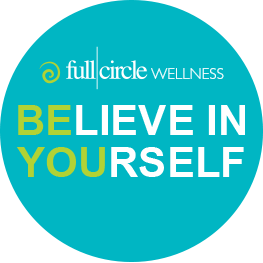Full Circle Wellness, the holistic approach to Kinesiology, Nutrition & Fitness

Many of us experience the “Winter Blues,” depression, the desire (and sometimes the act) of wanting to eat an entire pocket of potatoes and generally not feeling ourselves – for most us, these are symptoms are indicative of SAD – Seasonal Affective Disorder. (so yes, it’s not just you!)
What is Seasonal Affective Disorder?
Seasonal affective disorder (SAD), also known as winter depression, winter blues, summer depression, summer blues, or seasonal depression. It is a mood disorder in which people who have normal mental health throughout most of the year experience depressive symptoms in the winter or summer. -1
What Causes Seasonal Affective Disorder?
While we don’t know the exact causes of SAD, some scientists think that certain hormones made deep in the brain trigger attitude-related changes at certain times of year. Experts believe that SAD may be related to these hormonal changes. One theory is that less sunlight during fall and winter leads to the brain making less serotonin, a chemical linked to brain pathways that regulate mood. When nerve cell pathways in the brain that regulate mood don’t function normally, the result can be feelings of depression, along with symptoms of fatigue and weight gain. -2
SAD usually starts in young adulthood and is more common in women than men. Some people with SAD have mild symptoms and feel out of sorts or irritable. Others have worse symptoms that interfere with relationships and work. -2
What Are the Symptoms of SAD During Winter?
How You Can Prevent Seasonal Affective Disorder:
-2,3
When Should I Call my Doctor About Seasonal Depression?
If you feel depressed, fatigued, and irritable the same time each year, and these feelings seem to be seasonal in nature, you may have a form of SAD. Talk openly with your doctor about your feelings. Follow the doctor’s recommendations for lifestyle changes and treatment if you have SAD. -2
References:
1 – http://en.wikipedia.org/wiki/Seasonal_affective_disorder
2 – http://www.webmd.com/depression/guide/seasonal-affective-disorder
3 – http://psychcentral.com/library/seasonal_affective_treatment.htm
 Preventing SAD
Preventing SAD
 SAD
SAD
 Seasonal Affective Disorder
Seasonal Affective Disorder
 tips to staying happy in Winter
tips to staying happy in Winter
 Winter blues
Winter blues
 Winter depression
Winter depression
 winter motivation
winter motivation
 Full Circle Wellness Services
Full Circle Wellness Services
 Inspiration & Motivation
Inspiration & Motivation
 Wellness Articles & Resources
Wellness Articles & Resources
 Winter Motivation
Winter Motivation
 Full Circle Wellness Services
Full Circle Wellness Services
 Nutrition & Diet Tips
Nutrition & Diet Tips
 Wellness Articles & Resources
Wellness Articles & Resources
 Wellness Q&A
Wellness Q&A
 Winter Motivation
Winter Motivation
 Charity
Charity
 Corporate Wellness
Corporate Wellness
 Exercise & Fitness Tips
Exercise & Fitness Tips
 Inspiration & Motivation
Inspiration & Motivation
 Kinesiology
Kinesiology
 Motivation
Motivation
 Nutrition & Diet Tips
Nutrition & Diet Tips
 Races & Events
Races & Events
 Wellness Articles & Resources
Wellness Articles & Resources

Through non invasive & proven methods, Full Circle Wellness will help you balance the 3 elements of wellness - Mental, Chemical & Structural. Optimal health begins with balance!
 Start your full circle journey TO BALANCE
Start your full circle journey TO BALANCE
© 2023 Copyright Full Circle Wellness.Company web design by Web Solutions Desk